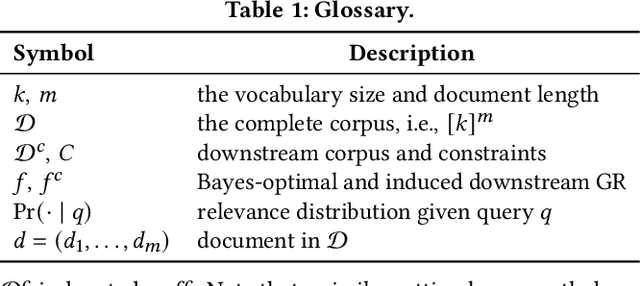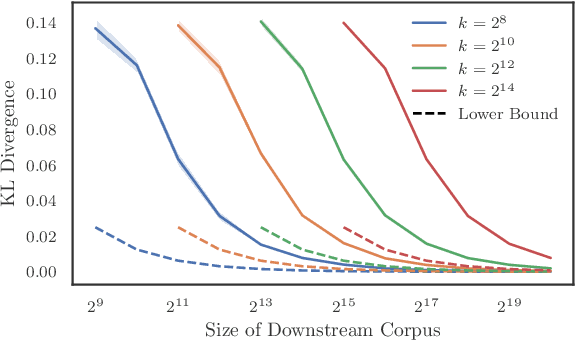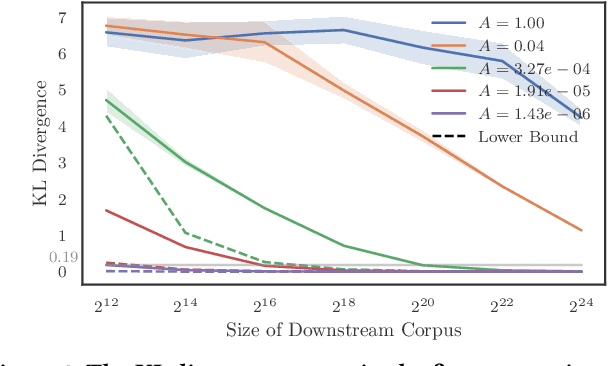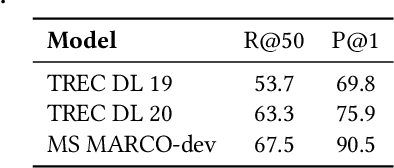Mengqi Zhang
AgentArk: Distilling Multi-Agent Intelligence into a Single LLM Agent
Feb 03, 2026Abstract:While large language model (LLM) multi-agent systems achieve superior reasoning performance through iterative debate, practical deployment is limited by their high computational cost and error propagation. This paper proposes AgentArk, a novel framework to distill multi-agent dynamics into the weights of a single model, effectively transforming explicit test-time interactions into implicit model capabilities. This equips a single agent with the intelligence of multi-agent systems while remaining computationally efficient. Specifically, we investigate three hierarchical distillation strategies across various models, tasks, scaling, and scenarios: reasoning-enhanced fine-tuning; trajectory-based augmentation; and process-aware distillation. By shifting the burden of computation from inference to training, the distilled models preserve the efficiency of one agent while exhibiting strong reasoning and self-correction performance of multiple agents. They further demonstrate enhanced robustness and generalization across diverse reasoning tasks. We hope this work can shed light on future research on efficient and robust multi-agent development. Our code is at https://github.com/AIFrontierLab/AgentArk.
SayNext-Bench: Why Do LLMs Struggle with Next-Utterance Prediction?
Jan 30, 2026Abstract:We explore the use of large language models (LLMs) for next-utterance prediction in human dialogue. Despite recent advances in LLMs demonstrating their ability to engage in natural conversations with users, we show that even leading models surprisingly struggle to predict a human speaker's next utterance. Instead, humans can readily anticipate forthcoming utterances based on multimodal cues, such as gestures, gaze, and emotional tone, from the context. To systematically examine whether LLMs can reproduce this ability, we propose SayNext-Bench, a benchmark that evaluates LLMs and Multimodal LLMs (MLLMs) on anticipating context-conditioned responses from multimodal cues spanning a variety of real-world scenarios. To support this benchmark, we build SayNext-PC, a novel large-scale dataset containing dialogues with rich multimodal cues. Building on this, we further develop a dual-route prediction MLLM, SayNext-Chat, that incorporates cognitively inspired design to emulate predictive processing in conversation. Experimental results demonstrate that our model outperforms state-of-the-art MLLMs in terms of lexical overlap, semantic similarity, and emotion consistency. Our results prove the feasibility of next-utterance prediction with LLMs from multimodal cues and emphasize the (i) indispensable role of multimodal cues and (ii) actively predictive processing as the foundation of natural human interaction, which is missing in current MLLMs. We hope that this exploration offers a new research entry toward more human-like, context-sensitive AI interaction for human-centered AI. Our benchmark and model can be accessed at https://saynext.github.io/.
Identifying and Transferring Reasoning-Critical Neurons: Improving LLM Inference Reliability via Activation Steering
Jan 27, 2026Abstract:Despite the strong reasoning capabilities of recent large language models (LLMs), achieving reliable performance on challenging tasks often requires post-training or computationally expensive sampling strategies, limiting their practical efficiency. In this work, we first show that a small subset of neurons in LLMs exhibits strong predictive correlations with reasoning correctness. Based on this observation, we propose AdaRAS (Adaptive Reasoning Activation Steering), a lightweight test-time framework that improves reasoning reliability by selectively intervening on neuron activations. AdaRAS identifies Reasoning-Critical Neurons (RCNs) via a polarity-aware mean-difference criterion and adaptively steers their activations during inference, enhancing incorrect reasoning traces while avoiding degradation on already-correct cases. Experiments on 10 mathematics and coding benchmarks demonstrate consistent improvements, including over 13% gains on AIME-24 and AIME-25. Moreover, AdaRAS exhibits strong transferability across datasets and scalability to stronger models, outperforming post-training methods without additional training or sampling cost.
Spectral Characterization and Mitigation of Sequential Knowledge Editing Collapse
Jan 16, 2026Abstract:Sequential knowledge editing in large language models often causes catastrophic collapse of the model's general abilities, especially for parameter-modifying methods. Existing approaches mitigate this issue through heuristic constraints on parameter updates, yet the mechanisms underlying such degradation remain insufficiently understood. In this work, we present a spectral analysis of sequential knowledge editing and show that a model's general abilities are closely associated with dominant singular directions of pretrained weight matrices. These directions are highly sensitive to perturbations and are progressively disrupted by repeated edits, closely tracking the collapse in both editing efficacy and general performance. Building on this insight, we propose REVIVE, a plug-and-play framework that stabilizes sequential editing by explicitly preserving the dominant singular subspace. REVIVE represents parameter updates in the spectral basis of the original weights and filters components that would interfere with the protected region. Extensive experiments across multiple models and benchmarks show that REVIVE consistently improves editing efficacy while substantially preserving general abilities under long-horizon sequential editing, including extreme settings with up to 20,000 edits.
DiffuGR: Generative Document Retrieval with Diffusion Language Models
Nov 19, 2025Abstract:Generative retrieval (GR) re-frames document retrieval as a sequence-based document identifier (DocID) generation task, memorizing documents with model parameters and enabling end-to-end retrieval without explicit indexing. Existing GR methods are based on auto-regressive generative models, i.e., the token generation is performed from left to right. However, such auto-regressive methods suffer from: (1) mismatch between DocID generation and natural language generation, e.g., an incorrect DocID token generated in early left steps would lead to totally erroneous retrieval; and (2) failure to balance the trade-off between retrieval efficiency and accuracy dynamically, which is crucial for practical applications. To address these limitations, we propose generative document retrieval with diffusion language models, dubbed DiffuGR. It models DocID generation as a discrete diffusion process: during training, DocIDs are corrupted through a stochastic masking process, and a diffusion language model is learned to recover them under a retrieval-aware objective. For inference, DiffuGR attempts to generate DocID tokens in parallel and refines them through a controllable number of denoising steps. In contrast to conventional left-to-right auto-regressive decoding, DiffuGR provides a novel mechanism to first generate more confident DocID tokens and refine the generation through diffusion-based denoising. Moreover, DiffuGR also offers explicit runtime control over the qualitylatency tradeoff. Extensive experiments on benchmark retrieval datasets show that DiffuGR is competitive with strong auto-regressive generative retrievers, while offering flexible speed and accuracy tradeoffs through variable denoising budgets. Overall, our results indicate that non-autoregressive diffusion models are a practical and effective alternative for generative document retrieval.
LLM Unlearning Should Be Form-Independent
Jun 09, 2025Abstract:Large Language Model (LLM) unlearning aims to erase or suppress undesirable knowledge within the model, offering promise for controlling harmful or private information to prevent misuse. However, recent studies highlight its limited efficacy in real-world scenarios, hindering practical adoption. In this study, we identify a pervasive issue underlying many downstream failures: the effectiveness of existing unlearning methods heavily depends on the form of training samples and frequently fails to generalize to alternate expressions of the same knowledge. We formally characterize this problem as Form-Dependent Bias and systematically investigate its specific manifestation patterns across various downstream tasks. To quantify its prevalence and support future research, we introduce ORT, a novel benchmark designed to evaluate the robustness of unlearning methods against variations in knowledge expression. Results reveal that Form-Dependent Bias is both widespread and severe among current techniques. We argue that LLM unlearning should be form-independent to address the endless forms of downstream tasks encountered in real-world security-critical scenarios. Towards this goal, we introduce Rank-one Concept Redirection (ROCR), a novel training-free method, as a promising solution path. ROCR performs unlearning by targeting the invariants in downstream tasks, specifically the activated dangerous concepts. It is capable of modifying model parameters within seconds to redirect the model's perception of a specific unlearning target concept to another harmless concept. Extensive experiments demonstrate that ROCR significantly improves unlearning effectiveness compared to traditional methods while generating highly natural outputs.
Topological Structure Learning Should Be A Research Priority for LLM-Based Multi-Agent Systems
May 29, 2025Abstract:Large Language Model-based Multi-Agent Systems (MASs) have emerged as a powerful paradigm for tackling complex tasks through collaborative intelligence. Nevertheless, the question of how agents should be structurally organized for optimal cooperation remains largely unexplored. In this position paper, we aim to gently redirect the focus of the MAS research community toward this critical dimension: develop topology-aware MASs for specific tasks. Specifically, the system consists of three core components - agents, communication links, and communication patterns - that collectively shape its coordination performance and efficiency. To this end, we introduce a systematic, three-stage framework: agent selection, structure profiling, and topology synthesis. Each stage would trigger new research opportunities in areas such as language models, reinforcement learning, graph learning, and generative modeling; together, they could unleash the full potential of MASs in complicated real-world applications. Then, we discuss the potential challenges and opportunities in the evaluation of multiple systems. We hope our perspective and framework can offer critical new insights in the era of agentic AI.
Disentangling Knowledge Representations for Large Language Model Editing
May 24, 2025Abstract:Knowledge Editing has emerged as a promising solution for efficiently updating embedded knowledge in large language models (LLMs). While existing approaches demonstrate effectiveness in integrating new knowledge and preserving the original capabilities of LLMs, they fail to maintain fine-grained irrelevant knowledge facts that share the same subject as edited knowledge but differ in relation and object. This challenge arises because subject representations inherently encode multiple attributes, causing the target and fine-grained irrelevant knowledge to become entangled in the representation space, and thus vulnerable to unintended alterations during editing. To address this, we propose DiKE, a novel approach that Disentangles Knowledge representations for LLM Editing (DiKE). DiKE consists of two key components: a Knowledge Representation Disentanglement (KRD) module that decomposes the subject representation into target-knowledgerelated and -unrelated components, and a Disentanglement-based Knowledge Edit (DKE) module that updates only the target-related component while explicitly preserving the unrelated one. We further derive a closed-form, rank-one parameter update based on matrix theory to enable efficient and minimally invasive edits. To rigorously evaluate fine-grained irrelevant knowledge preservation, we construct FINE-KED, a new benchmark comprising fine-grained irrelevant knowledge at different levels of relational similarity to the edited knowledge. Extensive experiments across multiple LLMs demonstrate that DiKE substantially improves fine-grained irrelevant knowledge preservation while maintaining competitive general editing performance.
Constrained Auto-Regressive Decoding Constrains Generative Retrieval
Apr 14, 2025



Abstract:Generative retrieval seeks to replace traditional search index data structures with a single large-scale neural network, offering the potential for improved efficiency and seamless integration with generative large language models. As an end-to-end paradigm, generative retrieval adopts a learned differentiable search index to conduct retrieval by directly generating document identifiers through corpus-specific constrained decoding. The generalization capabilities of generative retrieval on out-of-distribution corpora have gathered significant attention. In this paper, we examine the inherent limitations of constrained auto-regressive generation from two essential perspectives: constraints and beam search. We begin with the Bayes-optimal setting where the generative retrieval model exactly captures the underlying relevance distribution of all possible documents. Then we apply the model to specific corpora by simply adding corpus-specific constraints. Our main findings are two-fold: (i) For the effect of constraints, we derive a lower bound of the error, in terms of the KL divergence between the ground-truth and the model-predicted step-wise marginal distributions. (ii) For the beam search algorithm used during generation, we reveal that the usage of marginal distributions may not be an ideal approach. This paper aims to improve our theoretical understanding of the generalization capabilities of the auto-regressive decoding retrieval paradigm, laying a foundation for its limitations and inspiring future advancements toward more robust and generalizable generative retrieval.
Open Problems and a Hypothetical Path Forward in LLM Knowledge Paradigms
Apr 09, 2025Abstract:Knowledge is fundamental to the overall capabilities of Large Language Models (LLMs). The knowledge paradigm of a model, which dictates how it encodes and utilizes knowledge, significantly affects its performance. Despite the continuous development of LLMs under existing knowledge paradigms, issues within these frameworks continue to constrain model potential. This blog post highlight three critical open problems limiting model capabilities: (1) challenges in knowledge updating for LLMs, (2) the failure of reverse knowledge generalization (the reversal curse), and (3) conflicts in internal knowledge. We review recent progress made in addressing these issues and discuss potential general solutions. Based on observations in these areas, we propose a hypothetical paradigm based on Contextual Knowledge Scaling, and further outline implementation pathways that remain feasible within contemporary techniques. Evidence suggests this approach holds potential to address current shortcomings, serving as our vision for future model paradigms. This blog post aims to provide researchers with a brief overview of progress in LLM knowledge systems, while provide inspiration for the development of next-generation model architectures.
 Add to Chrome
Add to Chrome Add to Firefox
Add to Firefox Add to Edge
Add to Edge